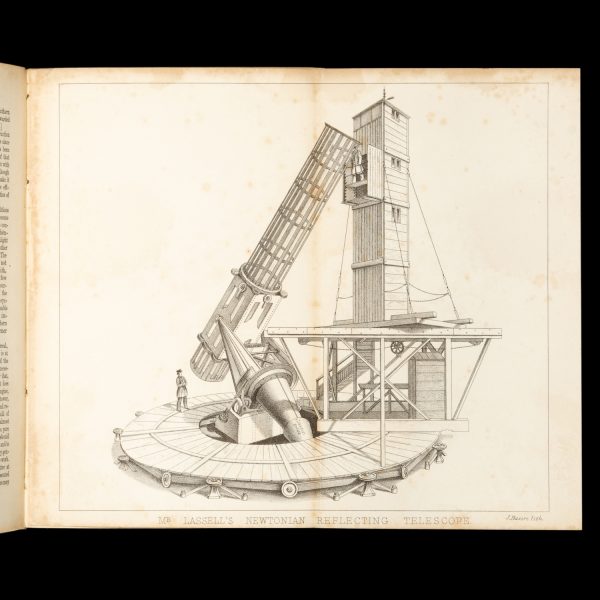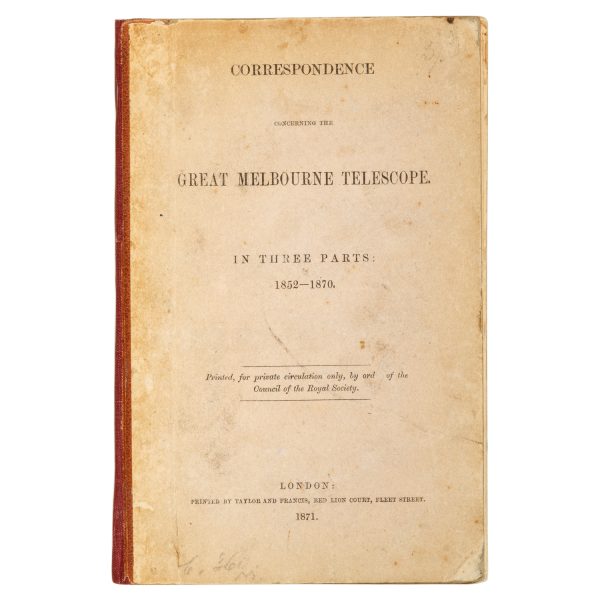# 46905
Royal Society (Great Britain). Southern Telescope Committee.
Correspondence concerning the great Melbourne telescope. In three parts: 1852 -1870.
$550.00 AUD
London : Taylor and Francis, 1871. Octavo, lettered flush cut papered boards, cloth spine (a few minor marks), presentation label to upper pastedown ‘Presented to W. H. Miller by the Royal Society’, pp. viii]; 45; [blank]; 3; [blank]; 40; [ii]; 59; [blank]; five lithographed plates (two folding), occasional light foxing, pale water stain to contents page, a very good copy. Printed, for private circulation only, by order of the Council of the Royal Society.
‘The Great Melbourne Telescope was an important icon for nineteenth-century Melbourne, signifying a transition from a colonial outpost to a progressive city with an interest in science and astronomy. The telescope is now being restored to its original 1869 condition, as a fully functional observational telescope, to be returned to Melbourne Observatory in the Domain for public viewing.’ (Scienceworks, Museums Victoria, 2020)
‘The Great Melbourne Telescope (GMT) was built by Thomas Grubb of Dublin in 1868 and erected at Melbourne Observatory in 1869. It was a reflecting telescope with a speculum (metal) mirror of 48 inches (1.2 metres) diameter. At the time it was the second largest telescope in the world and the largest in the southern hemisphere. The design and construction was overseen by a committee of eminent British astronomers, which approved Thomas Grubb’s revolutionary design. Although incorporating many of Grubb’s earlier innovations, the telescope was on a larger scale than anything he had previously attempted. Grubb’s firm went on to make many of the major telescopes around the world in the second half of the 19th century. The telescope was operated at Melbourne Observatory by a Great Melbourne Telescope Observer: Albert Le Sueur (1869-70), E. Farie MacGeorge (1870-72), Joseph Turner (1873-83), and Pietro Baracchi (1883-92); thereafter it was used rarely.’ – greatmelbournetelescope.org.au
Scarce.







